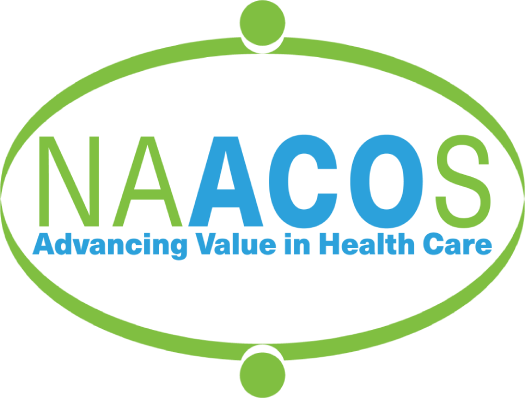What is the Policy Institute?
Strong value-based care models
Enhance payment and regulatory systems to reduce administrative burdens
Promoting choice and competition
Drive interoperability
Our policy insights
Translating Advocacy Skills into Action: Aledade’s National Policy Collaborative Shares Tools for Success
Aledade’s Annual Hill Day Puts Spotlight on Growing Support for Primary Care and Accountable Care
A Record of Wins: Successfully Advocating for Primary Care
Aledade's retrospective case study, published in the American Journal of Accountable Care, shows that over four years, five Aledade MSSP ACOs prevented 10,917 hospitalizations, 19,338 emergency department visits and 8,859 skilled nursing facility visits compared to regional competitors. This was largely due to improved care transitions and preventive care, such as annual wellness visits, which were performed at 265% above the regional average in 2019. The study highlights that value-based care can reduce costs and improve care quality by increasing preventive care and reducing acute service utilization.
Solidifying a state policy presence: Our state legislative efforts took shape this year by creating cohorts of engaged physicians and clinical staff across several states, all aiming to solidify the sustainability of primary care at the local level.
Aledade played a crucial role in advocating for changes to the benchmarking methodology, which transformed a potential benchmarking disaster into the financial alignment we aim to achieve. By pushing for adjustments to trend benchmarks, Aledade ensured that the high level of response to COVID-19 by its partner practices was reflected in the savings. As a result, 2020 became a standout performance year for the ACO, showcasing the effectiveness of these adjustments.
Protected independent practices during the pandemic: The pandemic created unprecedented financial challenges for the health care system and was especially difficult for primary care organizations, who generally operate on slim margins under normal circumstances. Aledade advocated for independent primary care practices to be able to take advantage of the financial support from federal relief program rulings.
A record of wins for primary care
Aledade's retrospective case study, published in the American Journal of Accountable Care, shows that over four years, five Aledade MSSP ACOs prevented 10,917 hospitalizations, 19,338 emergency department visits and 8,859 skilled nursing facility visits compared to regional competitors. This was largely due to improved care transitions and preventive care, such as annual wellness visits, which were performed at 265% above the regional average in 2019. The study highlights that value-based care can reduce costs and improve care quality by increasing preventive care and reducing acute service utilization.
Solidifying a state policy presence: Our state legislative efforts took shape this year by creating cohorts of engaged physicians and clinical staff across several states, all aiming to solidify the sustainability of primary care at the local level.
Aledade played a crucial role in advocating for changes to the benchmarking methodology, which transformed a potential benchmarking disaster into the financial alignment we aim to achieve. By pushing for adjustments to trend benchmarks, Aledade ensured that the high level of response to COVID-19 by its partner practices was reflected in the savings. As a result, 2020 became a standout performance year for the ACO, showcasing the effectiveness of these adjustments.
Protected independent practices during the pandemic: The pandemic created unprecedented financial challenges for the health care system and was especially difficult for primary care organizations, who generally operate on slim margins under normal circumstances. Aledade advocated for independent primary care practices to be able to take advantage of the financial support from federal relief program rulings.
Tangible outcomes
Advocating for Physician Fee Schedule improvement in benchmark calculations for Medicare Shared Savings Program ACOs, including areas around risk score caps, the rural glitch, and quality measurement.
The “rural glitch” penalizes certain ACOs in rural areas and other health professional shortage areas, when they are successful at delivering better care at lower costs. This happens because an ACO’s beneficiary population is included in the regional trend calculation, so they are penalized for making improvements to patient care and achieving savings when CMS determines their benchmark the following year. When an ACO reduces costs, this carries over to also reducing the region's costs; this effect increases the more beneficiaries an ACO has in its region. Unfortunately, many of these ACOs are disproportionately located in areas where there is a shortage of health professionals, such as rural areas and underserved communities, where CMS has stated it wants to see more participation in value-based models.
Aledade's retrospective case study, published in the American Journal of Accountable Care, compares the results of five Aledade MSSP ACOs to both ACO benchmarks and regional competitors over a four-year period. During this timeframe, "The cohort is estimated to have prevented 10,917 hospitalizations, 19,338 emergency department visits, and 8859 skilled nursing facility visits, compared with the region. This is believed to be largely driven by improvements in care transitions and preventive care, such as annual wellness visits, which the cohort of ACOs performed at 265% above the regional average in 2019."
The case study demonstrates that although results take time to achieve, value-based care has the potential to meaningfully reduce costs and improve the quality of care delivered by increasing preventive care and reducing utilization of acute services.
Policy Institute Advisory Council

Avik Roy

Ceci Connolly

Michael Chernew

Dr. Bob Kocher
Meet our policy experts

Sean Cavanaugh

Travis Broome

Casey Korba

Caroline Smith

Will London

Jennifer Lyons

Gaston Lassalle

Tom Goldon
Affiliations






